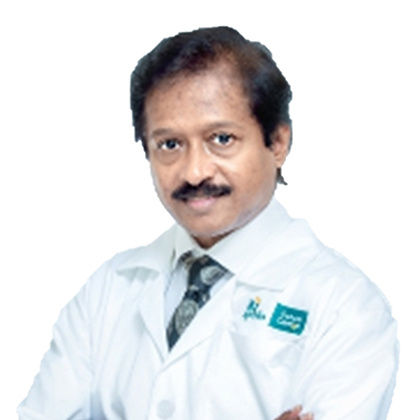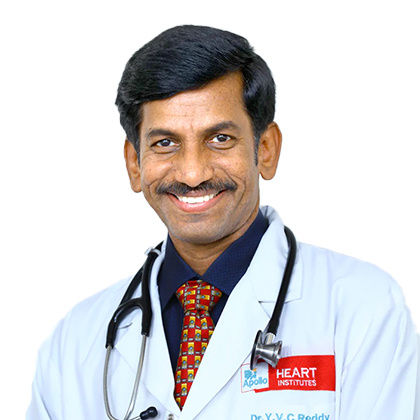Angioplasty Overview and Related Information
Explore an overview of angioplasty, a minimally invasive procedure to restore blood flow in blocked arteries. Learn about its purpose, process, recovery, and benefits in managing heart disease.

Written by Dr. Rohinipriyanka Pondugula
Reviewed by Dr. Vasanthasree Nair MBBS
Last updated on 13th Jan, 2026

If you or a loved one has been advised to undergo angioplasty, you may have questions about what it is, why it’s needed, and how it can help. This article will explain angioplasty in simple terms, including its purpose, procedure, recovery, and lifestyle changes that can support heart health.
What is Angioplasty?
Angioplasty is a medical procedure used to open blocked or narrowed blood vessels, usually in the heart (coronary arteries). These blockages occur due to a buildup of fatty deposits (plaques), reducing blood flow to the heart. If left untreated, this can lead to chest pain (angina) or even a heart attack.
Angioplasty helps restore proper blood flow by widening the narrowed artery using a small balloon and often placing a stent (a tiny mesh tube) to keep the artery open.
Consult a Top Cardiologist
Why is Angioplasty Needed?
Angioplasty is typically recommended for:
Severe blockages causing chest pain or heart attack risk.
Improving blood flow when medications or lifestyle changes aren’t enough.
Emergency treatment during a heart attack to quickly open the blocked artery.
How is Angioplasty Performed?
The procedure is minimally invasive and involves the following steps:
1. Preparation – You’ll be given local anesthesia, and a thin tube (catheter) is inserted into an artery, usually in the wrist or groin.
2. Guiding the Catheter – Using X-ray imaging, the doctor guides the catheter to the blocked artery.
3. Opening the Artery – A small balloon at the catheter’s tip is inflated to widen the artery.
4. Stent Placement – Often, a stent is placed to keep the artery open permanently.
5. Completion – The catheter is removed, and the small incision is closed.
The procedure usually takes 30 minutes to 2 hours, and most patients stay in the hospital for 1-2 days.
Recovery After Angioplasty
Recovery is generally quick, but you’ll need to take some precautions:
Rest for a few days – Avoid heavy lifting or strenuous activity.
Take prescribed medications – Blood thinners (like aspirin) and cholesterol-lowering drugs may be given to prevent future blockages.
Monitor the insertion site – Watch for swelling, bleeding, or infection.
Follow-up visits – Regular check-ups ensure proper healing and stent function.
Most people can return to normal activities within a week, but full recovery may take a few weeks.
Lifestyle Changes for a Healthy Heart
Angioplasty treats the immediate problem, but long-term heart health depends on lifestyle changes:
1. Heart-Healthy Diet
Eat more fruits, vegetables, whole grains, and lean proteins.
Reduce salt, sugar, fried foods, and processed meats.
Choose healthy fats like olive oil, nuts, and fish.
2. Regular Exercise
Aim for 30 minutes of moderate exercise (walking, swimming) most days.
Avoid sudden intense workouts; consult your doctor before starting a new routine.
3. Quit Smoking & Limit Alcohol
Smoking damages blood vessels and increases heart risks.
Excessive alcohol can raise blood pressure—moderation is key.
4. Manage Stress
Practice deep breathing, meditation, or yoga.
Get enough sleep (7-8 hours per night).
5. Control Other Health Conditions
Keep blood pressure, cholesterol, and diabetes under control with medications and regular check-ups.
When to Seek Medical Help
After angioplasty, contact your doctor if you experience:
Chest pain or discomfort
Shortness of breath
Fever or signs of infection at the insertion site
Severe swelling or bleeding
Can Angioplasty Be Avoided?
In some cases, lifestyle changes and medications can delay or prevent the need for angioplasty. However, if blockages are severe, angioplasty is often the best option to prevent a heart attack.
If you or someone you know is experiencing heart-related symptoms, consult a cardiologist for proper evaluation. Apollo 24|7 offers expert consultations and diagnostic tests—book an appointment today for personalized care.
Conclusion
Angioplasty is a safe and effective way to restore blood flow to the heart and prevent serious complications. By combining medical treatment with healthy lifestyle choices, you can significantly improve your heart health and overall well-being.
Consult a Top Cardiologist
Consult a Top Cardiologist

Dr. Zulkarnain
General Physician
2 Years • MBBS, PGDM, FFM
Bengaluru
PRESTIGE SHANTHINIKETAN - SOCIETY CLINIC, Bengaluru

Dr. Tripti Deb
Cardiologist
40 Years • MBBS, MD, DM, FACC, FESC
Hyderabad
Apollo Hospitals Jubilee Hills, Hyderabad
Dr. Diganta Buragohain
Cardiologist
1 Years • "DM (Cardiology) in 2025 from NEIGRIHMS, Shillong MD (General Medicine) in 2020 Gauhati Medical College, MBBS in 2015 from Gauhati Medical College,"
Guwahati
Apollo Excelcare Hospital, Guwahati

Dr. Rakesh Gopal
Cardiologist
22 Years • “ Trained in Trans Aortic Valve Implantation ( TAVI ) from Mehmet Akif Ersoy Hospital Istanbul, Turkey “ & MD (General Medicine), FRCP (Glasglow)DNB( Cardiology), FESC, HICR Cert (Harvard University, USA), Angioplasty Training from Washington Adventist Hospital USA, Asan Medical Centre, Seoul Korea, Board certified in Cardio Oncology, ICOS- USA
Chennai
Apollo Hospitals Heart Centre Thousand Lights, Chennai
(100+ Patients)

Dr. Vijayachandra Reddy Y
Cardiologist
27 Years • MD, DM, MRCP, FACC, FCSI, CCDS, FSCAI
Chennai
Apollo Hospitals Greams Road, Chennai
(1225+ Patients)

.webp)


